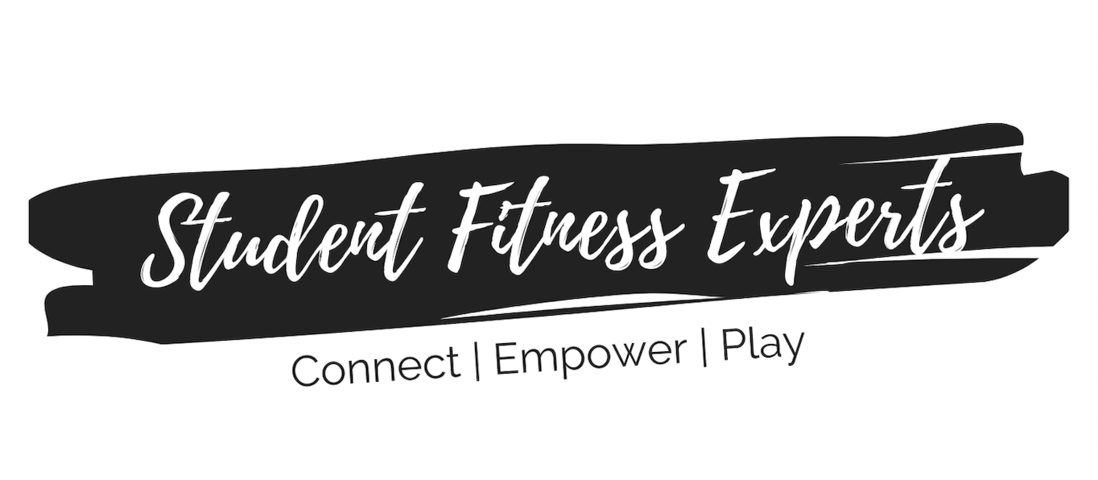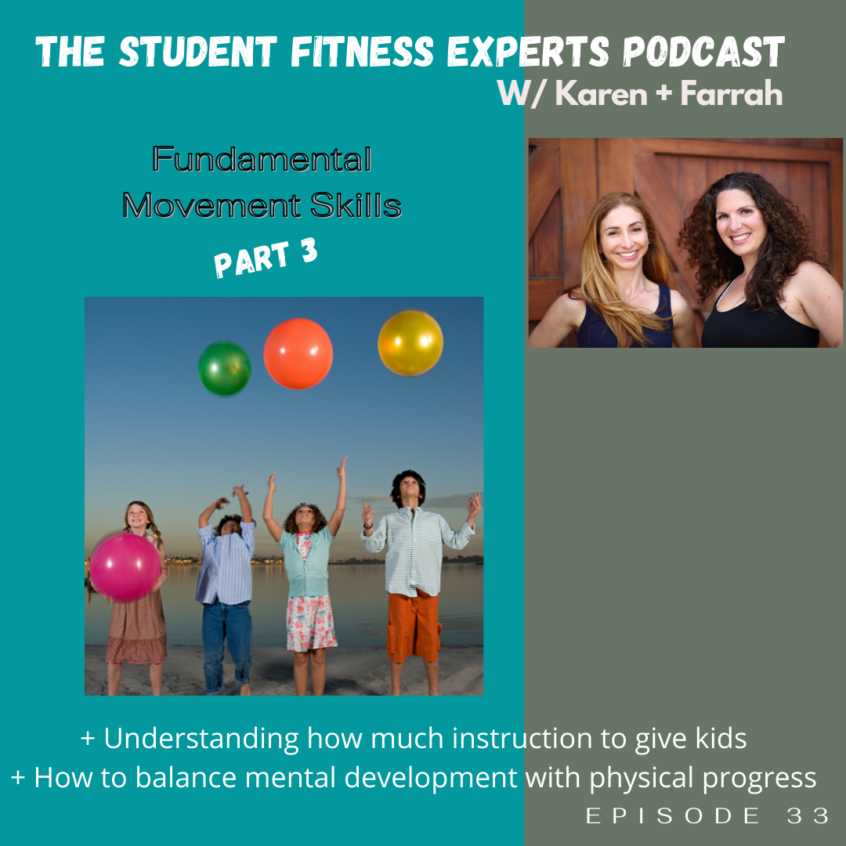“If you really try to give too much instruction at this age, you can really cause a child to struggle later on. So, just being supportive and motivating them to do the best of their abilities is really what we’re going for.”
The Student Fitness Experts podcast is a very intentional venture that aims to create a playful movement to help students grow up with inner confidence and self-awareness and a healthy body and mind.
Fundamental movement skills are important through the ages of two to five. Children grow and learn through their own developmental experiences, which creates unique challenges to their balance skills. In Part Three of the Fundamental Movement Skills Series, Karen and Farah discuss how we give children just the right amount of and right kind of instructions. Sometimes it can be tricky to balance the child’s mental development with their physical progress. In this age range, they should develop skills for purposeful play where they can explore life independently!
Tune in to understand how to help children find balance and set them up for ultimate success!
TimeStamps:
- [00:30] Understanding physical literacy
- [03:53] Having balance across different ages
- [05:08] Is there a long term advantage of future sports?
- [08:43] About a child’s way of finding balance
- [13:36] Why should you limit the instructions you give children?
- [19:13] Communicating with your kids in the right way
- [21:38] What kind of instructions should you give your children?
- Quotes:
“It [Physical Literacy] describes the ability of a person to instruct their body to confidently perform any action accurately. And it’s the motivation, confidence, physical competence, knowledge and understanding to value and take responsibility for maintaining purposeful physical pursuits and activities throughout the course of life.”
“I’m a huge proponent of just supporting the skills supporting the skills […], while every child is unique, preschool students thrive with activities that focus on the means, rather than the ends. ”
“By understanding these range of capabilities of your students, you can ensure that they can all participate, find success, you know, and feel included in the class.”
“You’re teaching them body awareness, they’re also learning spatial awareness, they’re learning how to start and stop their body, they’re getting core work in there. So there’s a lot of different things that are included in these games that might seem really simple, and there’s lots of different ways to play this game and challenge them.”
“We want to teach them to hone in on that skill, so that they learn that there’s always ways that they can challenge themselves in different ways.”
“If you really try to give too much instruction at this age, you can really cause a child to struggle later on. So, just being supportive and motivating them to do the best of their abilities is really what we’re going for.”

